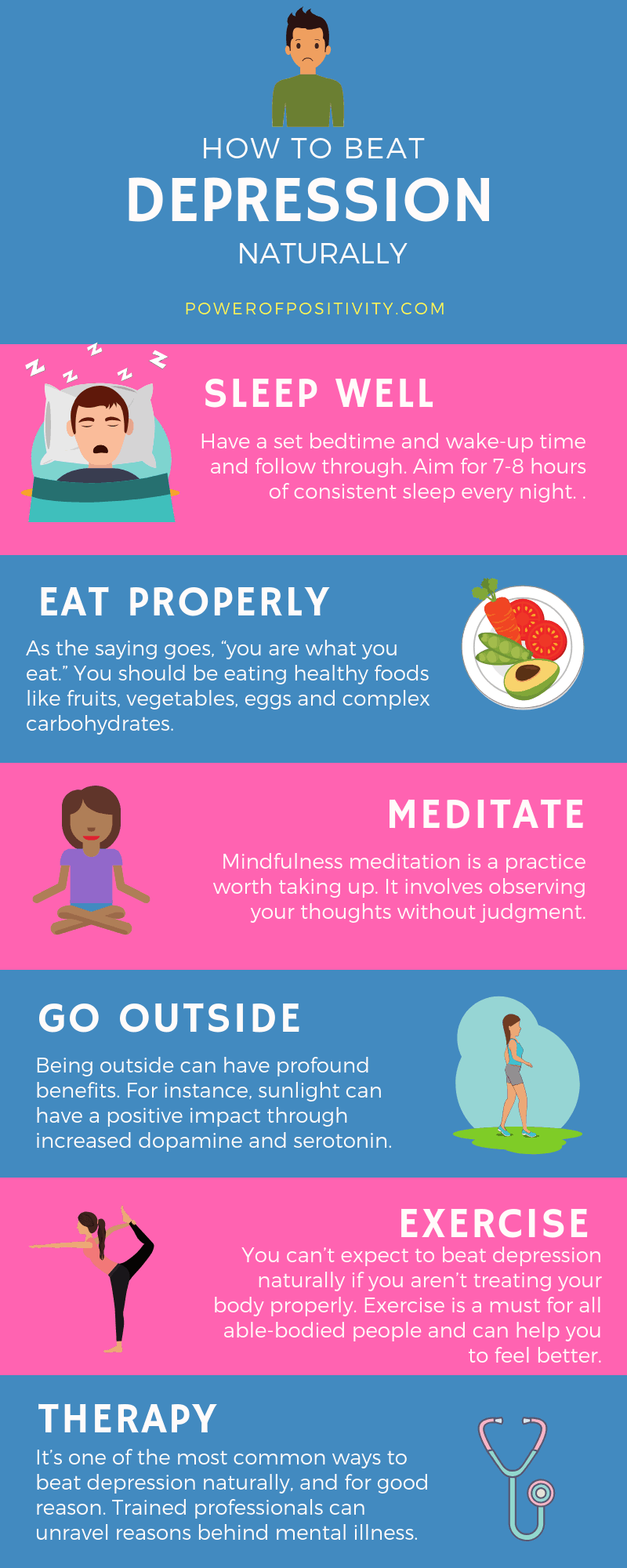Depression can make it challenging to live and can affect every area of your life. Approximately 16 million adults in the U.S. suffer from the disorder and have at least one major depressive episode. This anxiety disorder increases the risk of being hospitalized. Understandably, it can affect both your personal and professional life.
Some of the most common symptoms associated with depression include a loss of appetite, a change in sleeping patterns, agitation, fatigue, and weight gain or loss. Depression can often be caused by hereditary factors, illness, abuse, and hormone changes. Although the condition may be challenging to cope with, it can often be treated. In other words, you can regain your life back and feel more like yourself. We want to share the best advice for those living with depression.
Following are suggestions for battling depression. These tips are given by those who have also suffered from it.
Avoid Isolating Yourself
When you have a change in your mood and go to a dark place, it can be easy to isolate yourself from the rest of the world and spend most of your time alone. Unfortunately, isolating can cause the symptoms to become more severe. It can make it even more challenging to regain your joy or hope. Seeking help is necessary to prevent depression from escalating by speaking to a medical professional or therapist.
Getting the help that you need also means spending more time with family members and friends throughout the week to improve your mood. You’ll be more distracted and can spend time enjoying activities with loved ones, which will provide you with the right support system. – Kristen B., Asheville, NC
Follow the Doctor’s Orders
Many people make the mistake of failing to follow their doctor’s orders, which can cause their mood to become more severe over time. You’ll need to trust the instructions provided by the medical professional, which may include medication and scheduling routine appointments. The medication won’t work well if it’s not taken on the right days or at the right times. You’ll also need to practice transparency with each doctor’s visit to ensure that you receive proper treatment and can begin to make progress. – Sharon S., Topeka, KS
Abstain from Alcohol
Although consuming alcohol may temporarily numb the emotional pain that you feel, it won’t benefit you in the long run. Alcohol consumption can lead to an addiction and can won’t offer long-term treatment that benefits your overall health. – Robert G., Pittsburgh, PA
Give Yourself Compassion
If you’re ready to overcome depression, you’ll need to practice being compassionate towards yourself to make it an easier process. Avoid taking on depression as your identity and allow it to become your enemy rather than becoming at odds with yourself. Treating yourself better can allow you to value yourself and have the motivation you need to deal with depression. – Stephanie S., Los Angeles, CA
Express Yourself in Writing
An effective way to deal with depression is to write down your thoughts and feelings each day. Putting down your thoughts and emotions in writing can help you to process what you’re experiencing and get it off your chest. Using a private journal to record your thoughts will also allow you to reflect on the progress that you’ve made or discover if certain events trigger your depressive episodes. – Bryan R., Montreal, Quebec
Work on Your Self-Image
Most people who suffer from depression have low self-esteem and a poor image of themselves. Make it a point to boost your confidence by practicing positive thinking about yourself and avoid speaking negatively. Specific lifestyle changes can also be made by exercising throughout the week and eating healthy. – Ana G., Rome, Italy
Spend Time in the Sun
Exposure to sunlight is proven to increase the level of serotonin in the body, which can immediately improve your mood. Try to get 30 to 60 minutes of time in the sun every 24 hours, whether you’re walking outdoors or are laying outside. – Daniel K., Ft. Myers, FL
Improve Your Quality of Sleep
Many people make the mistake of getting insufficient sleep throughout the week, as well as too much sleep. If you want to overcome depression, aim for seven to eight hours of uninterrupted sleep each night. Use blackout curtains and a white noise machine to avoid waking up due to outside noises or light. Avoid sleeping more than 10 hours each day, which can make it easy to have a lack of energy. If you have difficulty falling asleep each night, take serotonin and avoid using electronics an hour before your bedtime. Reading, take a bath, and dimming the lights can put your mind and body at ease before it’s time to fall asleep. – Nancy R., Anchorage, AL.
Although it can be challenging to have hope when you’re suffering from depression or anxiety, many solutions will prove to be useful and effective when you’re feeling low. With the right treatment and techniques practiced consistently, you can begin to overcome the disorder and learn how to cope with it long-term.



















